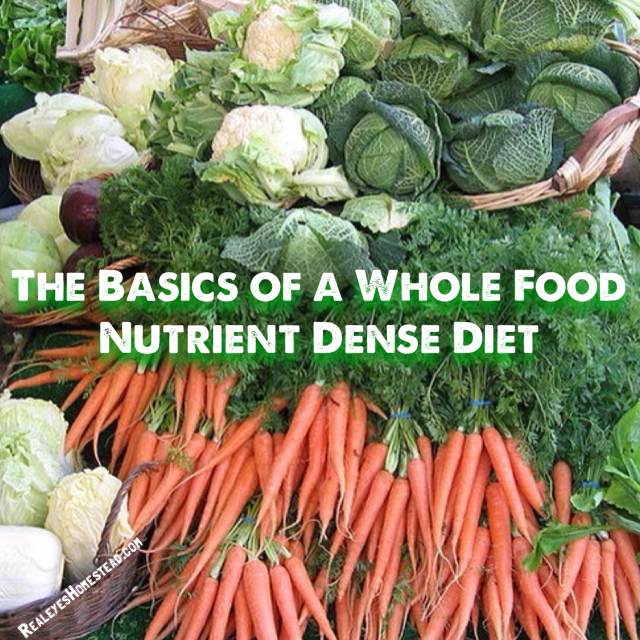There are so many diets out there! It is hard to know which one is best. Thing is that the answer is simple, eat unrefined, properly prepared foods! What does this mean? I thought that I would write up a post going over the basics; listing the six classes of nutrients, briefly explaining the role of each within our bodies, and what foods are the best sources for them. Knowing this information helps me make better choices when it comes to my meals. Hope this helps!
The Six Classes of Nutrients are:
Macronutrients:
- Water
- Carbohydrates
- Proteins
- Fats
Micronutrients:
- Vitamins
- Minerals
Let’s briefly go over some of the roles these nutrients play within our bodies and what the best sources for them are.
Water
Roles
- Transports nutrients within our bodies
- Improves oxygen delivery to our cells
- Aids in waste removal
- Improves cell to cell communication
- Absorbs shock to joints and organs
Sources
The body can produce 8% of our needed water supply itself. The remaining 92% must be ingested. I personally avoid tap water because of its fluoride, chlorine, and traces of pharmaceutical drugs. I like to drink filtered spring water, which is rich in minerals. I don’t recommend distilled water nor reverse osmosis water because it is stripped of its minerals. Well water can also be a great source, but make sure to get it tested for pathogens, heavy metals, pesticides, fertilizers and arsenic.
Carbohydrates
Roles
- Quick source of energy for our muscles
- Provide a source of fiber
- Quick source of energy for the brain
- Along with fats and proteins, carbohydrates help
- Lubricate our joints
- Promote growth of body tissues
Sources
Consumption should be from only unrefined carbohydrates and the majority should be complex carbohydrates. Unrefined means, not processed, the way the food occurs in nature. An example would be raw honey or an unprocessed vegetable. The less processed a food is usually the better. The majority should be complex carbohydrates which include vegetables, whole grains, and legumes. It is important to properly prepare your grains and legumes by soaking or sprouting them before cooking. This rids these foods of enzyme inhibitors, making the nutrients within them easier to digest and absorb. Simple carbohydrates include fruits and sugars, some healthy options include unprocessed fruits, raw honey, and unprocessed maple sugar.
Proteins
Roles
Proteins are very important as they make up many, many molecules in our body, which are necessary for life, some of which are listed below
- Enzymes are important in all metabolic reactions that occur in our bodies
- Antibodies are necessary for immune function
- Hormones regulate many functions in our bodies
- Hemoglobin carries oxygen in our blood stream
Sources
Good sources of proteins include naturally raised animals, like non-GMO, free range chicken & grass fed beef, raw whole dairy products from animals raised on pasture including cows and goats, wild caught seafood, and properly prepared soaked and sprouted legumes.
Fats
Roles
- Required for the absorption of the fat soluble vitamins A, D, E, and K
- Slow down absorption (it is a good idea to pair a fat with a simple carbohydrate to avoid blood sugar deregulation)
- Provide a source of energy and aid in energy regulation
- Cholesterol, found in animal fat, is a precursor to every steroid hormone in our bodies including all our sex hormones
- Satiate our bodies and brain
Sources
A good rule of thumb is to have about 30% of your daily calorie intake come from good quality fats. A balance of all fats is important including omegas 3, 6, 9 and saturated fats. A good source of omega 3 fatty acids, as many of you probably already know, is fish. Many nuts and seeds are rich in omegas 3, 6, and 9, make sure you soak your nuts and seeds. Good sources of saturated fats include cold pressed coconut oil, grass fed butter, and other animal fats from pasture raised, grass fed animals.
Vitamins
Roles
- Function as coenzymes in metabolic reactions
- Are essential for growth and vitality
- Deficiencies can lead to a variety of disorders including mood issues
- Helpful in digestion and elimination
- Needed for immunity
Sources
The best sources of vitamins are properly prepared, whole foods. It is important to incorporate raw foods into your diet. Make sure about 50% of your food is not cooked. Fresh leafy greens and veggies are very important. Organic and sustainably farmed veggies are best as they come from more nutrient rich soils therefore making them more nutrient dense themselves.
Minerals
Roles
- Act as cofactors for enzyme reactions
- Maintain pH balance in the body
- Contract and relax muscles
- Facilitate the transfer of nutrients across the cell membrane
- Provide structural and functional support
Sources
Mineral rich foods include, you guessed it, properly prepared, whole foods. Including mineral rich bone broth made from healthy animals raised on pasture, unrefined salts (Himalayan salt is an example), veggies, and mineral rich water like natural spring water. Again, organic and sustainably farmed veggies are best as they come from more mineral rich soils.
In conclusion, a nutrient dense, whole food diet includes drinking mineral rich water, spring water is good, getting good quality fats, incorporating grass fed, pasture raised animals and wild caught seafood, eating veggies from sustainable farming methods, and making sure 50% of the foods in your diet are raw! I hope you found this information useful!
I also want to note that probiotic rich fermented foods should be a staple in a nutrient dense, whole food diet. Fermented veggies are rich in minerals, vitamins, and complex carbohydrates; fermented dairy products are rich in good quality fats and proteins. Fermented foods are also great sources of enzymes and probiotics which aid digestion and absorption.





